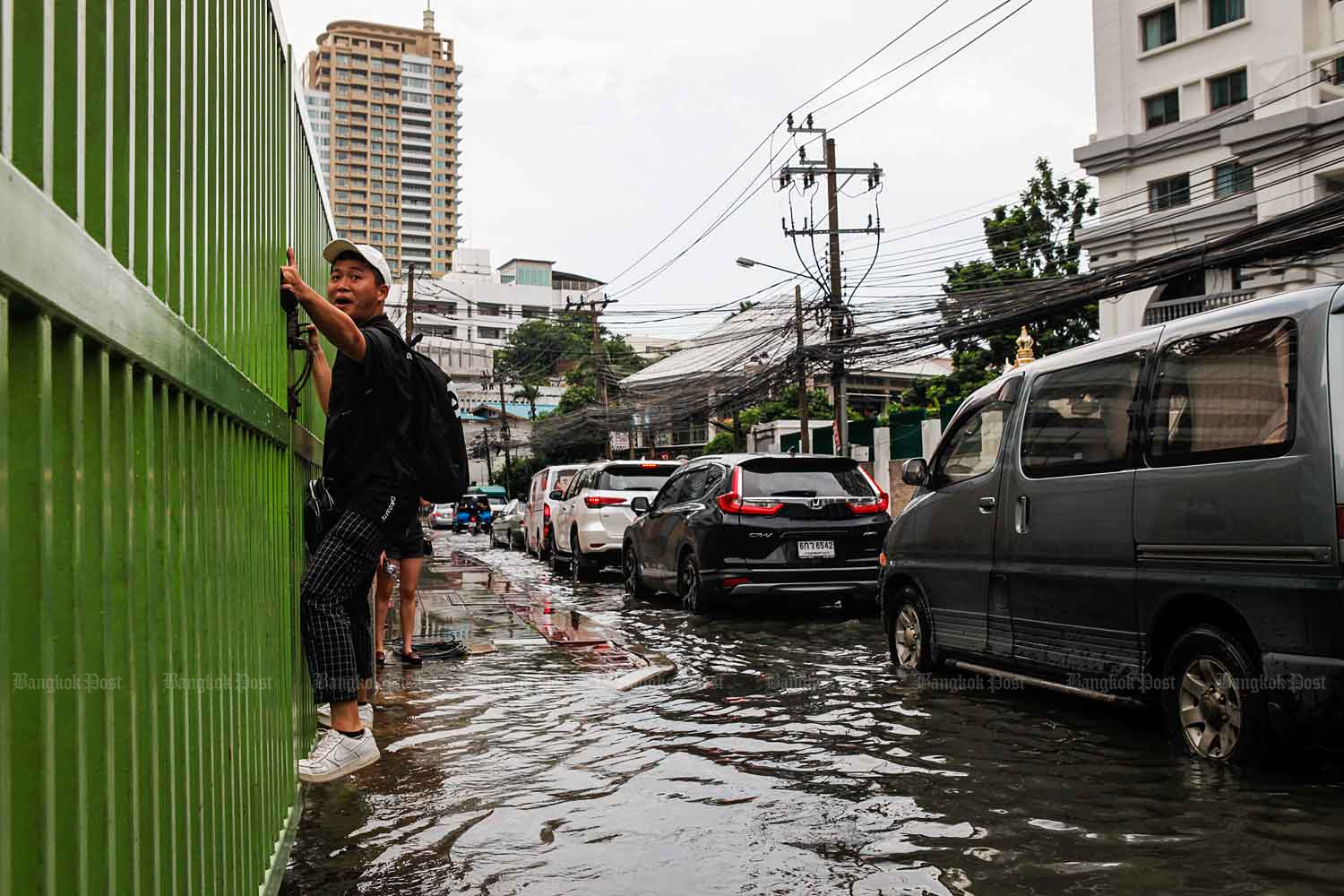
Engineers have warned that Thailand will remain trapped in a cycle of flooding unless the government expands natural catchment areas, raises flood embankments and builds more underground drainage systems.
The Council of Engineers Thailand (CoE) and the Engineering Institute of Thailand (EIT) yesterday proposed solutions to end the "endless cycle of flood disasters".
"Thailand can learn lessons from recent flooding in Ubon Ratchathani. We need to have better disaster-warning systems and better flood-prevention infrastructure," the professional bodies stated.
Among the proposals was to borrow from the Netherlands' model of dams and embankments as a defence for low-lying riparian locations such as Ubon Ratchathani province.
Professor Suchatvee Suwansawat, president of the Council of Engineers Thailand, said embankments in some flood-prone areas should be raised.
Authorities should also enlarge flood catchment zones dubbed "monkey cheeks" (kaem ling), to better control the flow of runoff, he added.
In urban areas with smaller flood-catchment areas, the government must make use of underground drainage capacity as reservoirs for floodwater that can be flushed out later, Prof Suchatvee, dean of King Mongkut's Institute of Technology Ladkrabang (KMITL), said.
Speaking at a seminar on flood prevention yesterday, the engineering experts also voiced concern over failures in warning systems -- a major factor in worsening the impacts of flooding.
In the case of Ubon Ratchathani province, government agencies had prior data about the arrival of tropical storms Podul and Kajiki.
"Yet, state agencies failed to send out timely information and warnings in advance. The damage would have been limited if warnings had been sent much earlier," said Prof Suwatana Chittladdakorn, a lecturer on hydrology at Kasetsart University.
He said the government had enough data and a sophisticated flood-warning system, but good management was lacking.
"There is plenty of information, but it is scattered in various agencies which fail to integrate the data and work together," said Prof Suwatana Chittladdakorn, a hydrology expert at the CoE.
Meanwhile, the Meteorological Department yesterday warned that a monsoon depression from China will drench the North, Northeast, and Upper Central regions this weekend, with downpours extending to a few eastern seaboard and southern provinces.
Temperatures in the affected areas are expected to drop by as much as 3-5°C from Monday to Wednesday, it said.